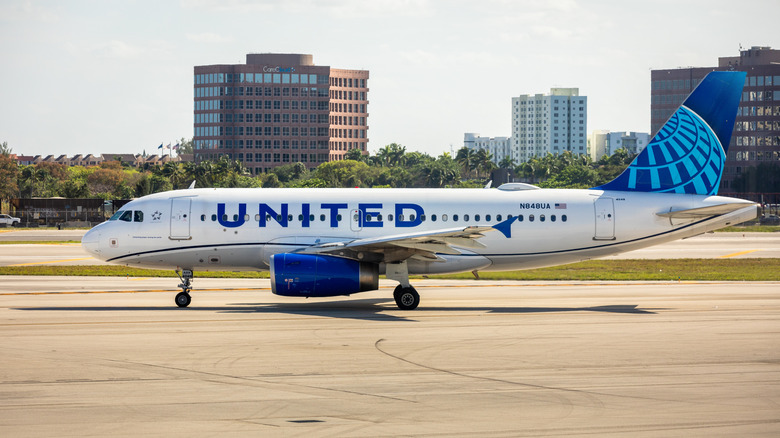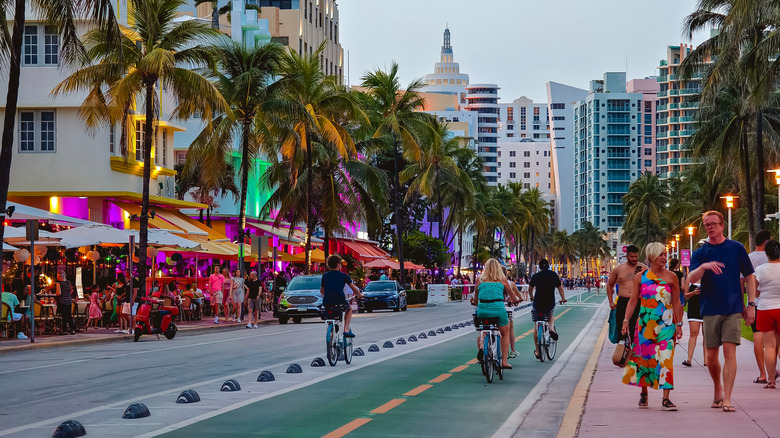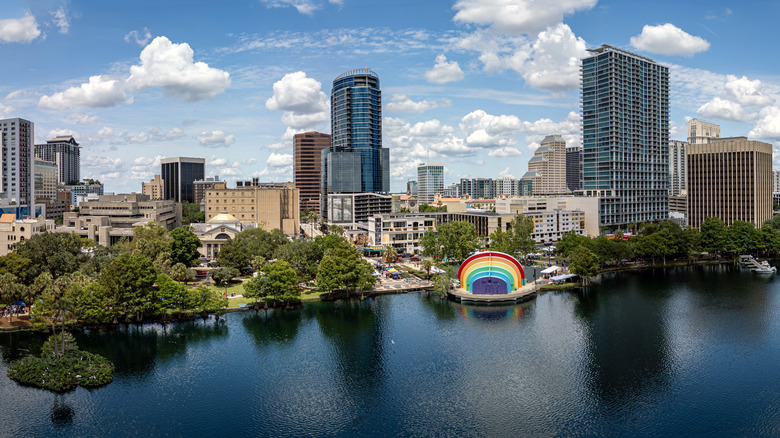Airports In Florida Are Seeing A Huge Decline In Travel (And What This Means For Tourism)
Florida has been a popular vacation destination for as long as we can remember. But as of late, that popularity has been declining, with airports feeling the heat. According to the Miami Herald, Miami International Airport experienced a 1.4% decline in passengers during the first half of 2025, which equals nearly half a million people. Meanwhile, Fort Lauderdale-Hollywood International Airport saw an 11.1% decrease. These are two of the largest airports in South Florida based on passenger traffic, which is bound to affect tourism.
So what's causing the decline? Tourism Economics points to negative sentiments abroad, along with economic and immigration uncertainty. Negative sentiments center around political and social tensions. Tariff threats have impacted foreign economies, creating economic instability and weakening exchange rates — and when people have a scarcity mindset, they're far less likely to book a vacation. Meanwhile, the Trump administration's immigration policies have made travelers uneasy about crossing borders. Given all these issues, some foreigners simply don't want to support the American economy with their tourist dollars.
What declining airport travel means for Florida's tourism
Less airport traffic generally means less tourism. However, some officials aren't worried about the downward trend. In an interview with the Miami Herald, Airport CEO Ralph Cutie shared that the numbers are similar across the entire country, and that MIA "is still just 1% behind last year's record-breaking pace and continues to generate strong demand."
Unfortunately, local businesses aren't so optimistic. In another Miami Herald interview, Kevin Rusk, owner of Miami's Titanic Brewery & Restaurant, shares, "This is the toughest summer we've seen." Business closures feel more commonplace, with fewer people strolling down the streets. It isn't just tourist areas being affected, either. Even businesses in local neighborhoods are noticing fewer customers. Less travel demand has even led to JetBlue announcing it will stop flying into Miami starting in September 2025.
With JetBlue gone and fewer people traveling through Florida's airports, we may see a change in the overall tourism market — perhaps even a shift towards luxury travel. Hotel renovations in Miami are favoring large, luxury suites over standard hotel rooms, while Fort Lauderdale is experiencing an increase in luxury real estate and financial firms. Perhaps this rebrand can attract an ultra-wealthy clientele to make up for any profit loss.
Should you travel to Florida despite these issues?
How does all this impact your vacation plans? If you're already in the United States and have the means to travel, there's no reason Florida shouldn't be on your radar, especially if you want to take advantage of the delicious local cuisine. With reservations and foot traffic low, it's even easier to get a table at popular Miami restaurants, where you can support local businesses. Plus, August and September are two of the best months for foodies vacationing to Miami when the city's annual food festival, Miami Spice, is in full swing. However, since peak hurricane season is between August and October, check the weather forecast before hopping on that flight. Not timing your trip carefully is one of the worst mistakes people make on a Florida vacation.
We're well aware that economic uncertainty isn't just a foreign concept. Americans are also feeling economic pressures, and many are wary of spending money on travel. However, airfare may actually cost less than in years past. Unfortunately, other costs like food and beverage and recreation have increased. So overall, that trip to Florida may be pricier than you'd expect. This is, of course, depending on your exact destination and how you spend your money. Florida still boasts some of the cheapest destinations for a beach vacation in America, so keep an open mind, crunch those numbers, and see if you can afford that Florida vacation.


